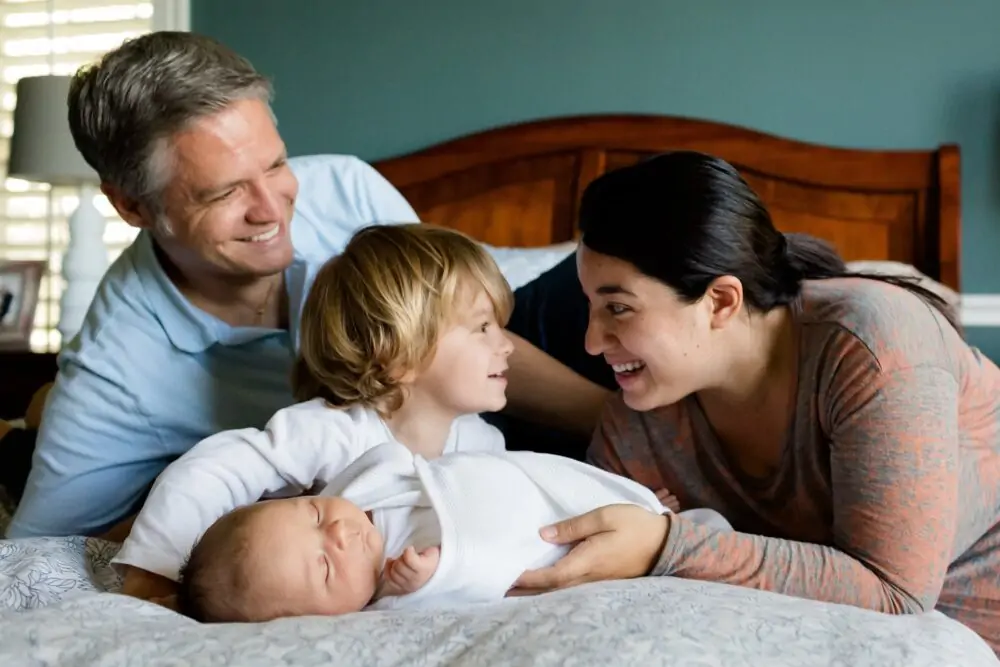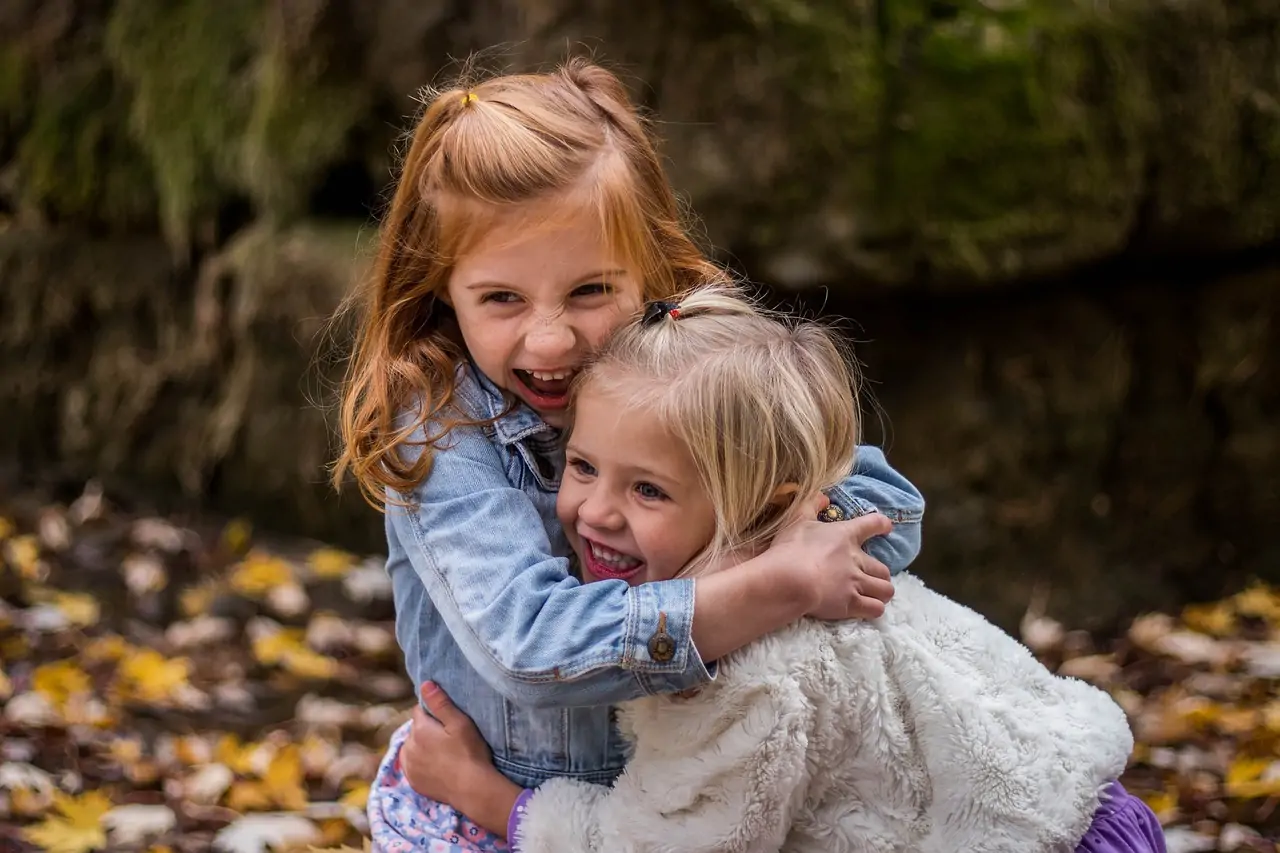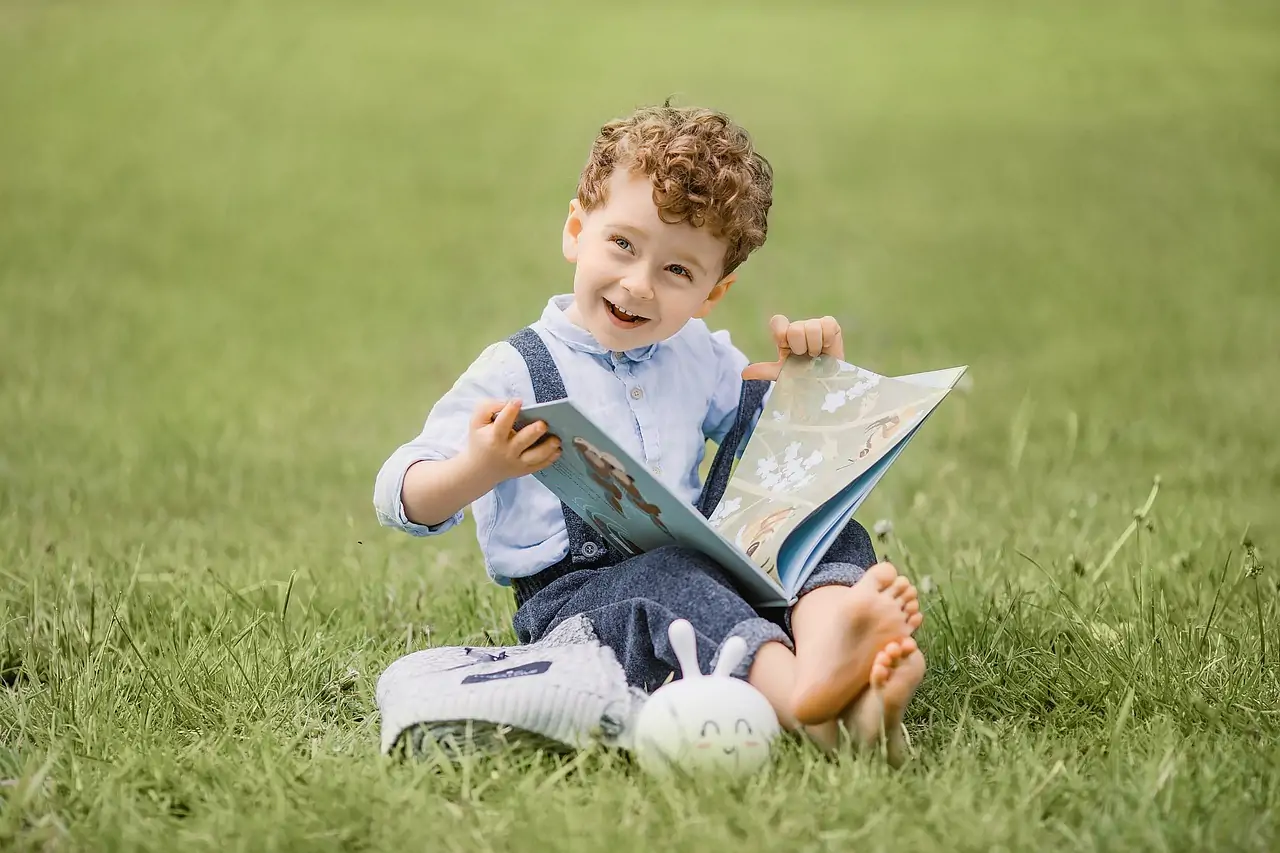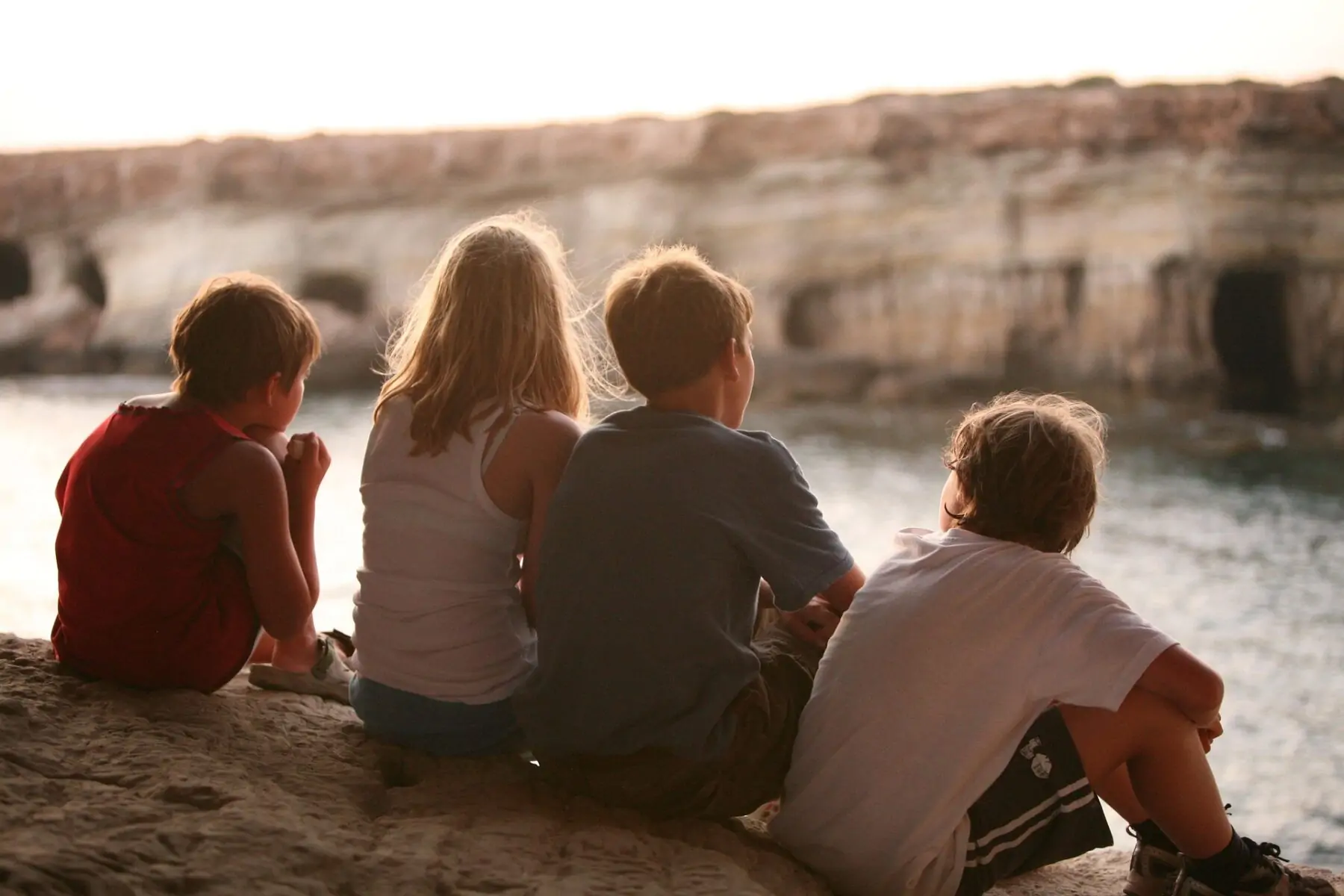Understanding Child Development: What Parents Need to Know
8 min read
Last Modified 22 May 2025 First Added 31 May 2023

If you’re a parent, caregiver, or just interested in understanding how children grow and develop, then you’re in the perfect place.
Through this article, we will be discussing everything from what child development is, to the different stages of development, and why they’re important. We’ll also dive into the never-ending debate of nature vs nurture and explore how adverse childhood experiences can impact a child’s development.
We understand that parenting can be tough, and we’re here to offer a supportive hand.
Child development refers to a child’s growth or change over time. This can be physical, emotional, or mental change, which typically takes place through a variety of child development stages. It’s basically like waiting for a human butterfly to emerge from a cocoon and fly! (A little cheesy, but you get the picture).
The concept of child development has been around for centuries and debated by famous philosophers like Jean-Jacques Rousseau and John Locke, but why is this topic so important?
Well, simply put, child development gives us the ability as parents, caregivers, or educators to understand how to provide the best possible environment for our children to grow and thrive.

Child development consists of five stages, each with its own unique milestones. It’s important to know and understand these stages, and how they relate to your child. So, let’s dive in:
Ah, the stage of sleepless nights, endless nappy changes, and oh-so-adorable baby coos. This stage refers to the period from birth to approximately 12 months of age. During this stage, key milestones to look for are rolling over, sitting up, lifting their head, crawling, and possibly saying their first words.
During infancy, it’s important to develop trust, your baby will learn to communicate through crying, babbling, and cooing. (Be sure to talk back – they are waiting for your response!). Provide a safe and nurturing environment to allow your child to explore and develop their newfound skills.
Have a look at our baby toys, these can aid motor skills, hand-eye coordination, and overall cognitive ability, giving you everything you need to help your baby’s development skills.
The land of theatrical emotions, picky eaters, and boundless energy – also known as “terrible twos”.
Toddlerhood lasts from 1 to 3 years old, and during this phase, children are consistently growing as they develop their coordination, social and language skills. Milestones to look out for can include, learning to walk or run with confidence, improved language skills, and establishing their independence, empathy and self-awareness.
You may notice your little one’s motor skills improve, like their ability to use utensils or dress themselves. Have a look at our toddler toys, this will give you everything you need to assist your little one in their next developmental step.
Get ready for a heap of “no’s” as your little one figures out what they like and don’t like! Encourage them to explore their senses and discover new experiences.
Welcome to the big leagues – formal education! This phase ranges from 3 to 5 years old, a stage filled with creativity and imagination. (And the occasional mood swing!)
This is when your child is developing their cognitive abilities, playing with others, learning to share and take turns, and becoming more independent. Key milestones can be seen in their abilities to count, recognise letters, and shapes, and learn to follow basic rules and routines.
In need of new ways to keep your child engaged and enhance their development skills? Have a look at our preschool toys.

This phase develops between 6 to 11 years old. During this, children experience a stronger sense of self-identity and where they fit in this world. Key milestones to watch out for during this phase include development in social skills such as developing talents and interests.
You may find your child is becoming confident with reading, understanding responsibility, and maintaining stronger friendships.
This is a great social time for your child, push them to take part in socialising with other children, and encourage imaginative play with our arts and crafts or board games and puzzles and get ready for the homework battles and lots of “why” questions!
Ah, the time for hormonal change has arrived! This is the beautiful phase of identity exploration, and mood swings galore.
This stage typically ranges from 12 to 18 years of age. Milestones within this stage include a stronger grasp of self-identity, managing complex relationships, and preparing for the shift into adulthood.
Parents, caregivers, or educators, be sure to provide a supportive environment for this phase, free of judgement. Help your teen explore the complexities of adolescence whilst still exploring their interests. Remember your teen might be cheeky, giving you endless eye rolls as they claim to “know it all”, however, they still need your love and guidance more than ever before.
This debate is one that has lasted centuries amongst experts.
Nature vs. nurture is an ideology based on whether a child’s development is influenced by their genes or by their environment. While both factors can work together in shaping your child’s future, understanding these tendencies can help you provide better support.
If you want to understand your child’s nature, observe behaviour and actions in different situations. Is your child more introverted or extroverted? Do they have a particular talent or interest?
By identifying your child’s weaknesses and strengths, you will be able to adapt your parenting style to focus on supporting them. On the other hand, it’s important to recognise that culture also has a big helping hand in your child’s development. As adults, we have great influence over our little one’s beliefs, values, and morals.
Things like, interaction with other adults, watching TV and films, and interacting with a vast community they live in, can impact their growth and development.

Building positive relationships is crucial in a child’s world. This aids their ability to build on social and emotional skills. Positive relationships can help children in developing their communication skills, empathy, and emotional intelligence. Being able to hone in on communication skills and emotional intelligence gives your child the opportunity to learn how to regulate their own emotions, deal with conflict, and build resilience.
Play is a huge part of a child’s development. Playtime offers children the opportunity to explore their imagination, surroundings, creativity, and cognitive skills. A child needs to learn through exploration, this can help build on their physical, social and emotional skills. Have a look at our toys by age to encourage creativity and imagination.
Every adult wants a child to succeed in life and in school. However, parents are always busy running around, getting things done, and therefore may not always have the time to invest in their child’s development.
So – to help out all the busy parents, caregivers and educators, here is a handy resource list that will definitely support your child’s development.
For physical development, focus on getting your child up, moving and grooving! Nothing is better for a child’s growth like physical activity, the same goes for their diet. Be sure to feed your little one well to keep their energy up and development progressing.
Looking to assist your child aged 0 to 5 years old? Have a look at the Early Learning Centre physical development toys. These are the perfect toys to keep your little one engaged and active – from baby walkers to ride-on toys!
Activities to get your children aged 6 and over, more active? Have a look at some outdoor toys. Everything ranging from trampolines to bikes – burn all that energy away.
Alternatively, the UK’s NHS Livewell website is a reliable source of information to help your child’s health and physical development. Read their 10 ways to get active with your kids for inspiration to get active with the whole family, no matter the age difference!
Improve your child’s motor skills by supporting them in activities that promote controlling small movements (fine motor skills) like arts and crafts, construction activities, or activity tables.
During infancy, being surrounded by adults who are sensitive and in tune with their emotions can build a strong foundation for your child to acquire emotional security.
Whilst allowing your child to communicate with others and play, you will naturally be supporting your child’s development in social and emotional skills. Here are a few toys to support development of emotional stability and emotional literacy:
We hope this article helps you in understanding children’s development, what stages are involved, and how you can assist. Have a look at our educational toys to assist you along your child’s development.
This process doesn’t have to be a complicated one, by providing your child with opportunities like playtime, physical activity, and helping them express emotions and empathy, you are enabling your child to thrive, this is a great excuse to let your inner child come out and play!
Read our disclaimers.